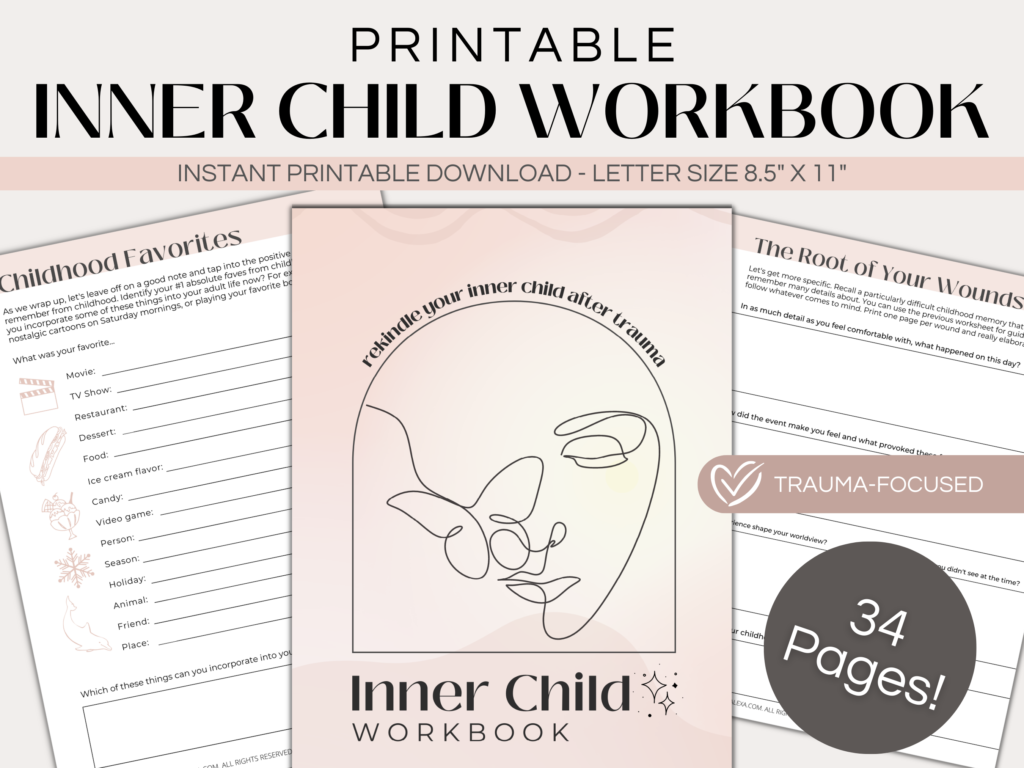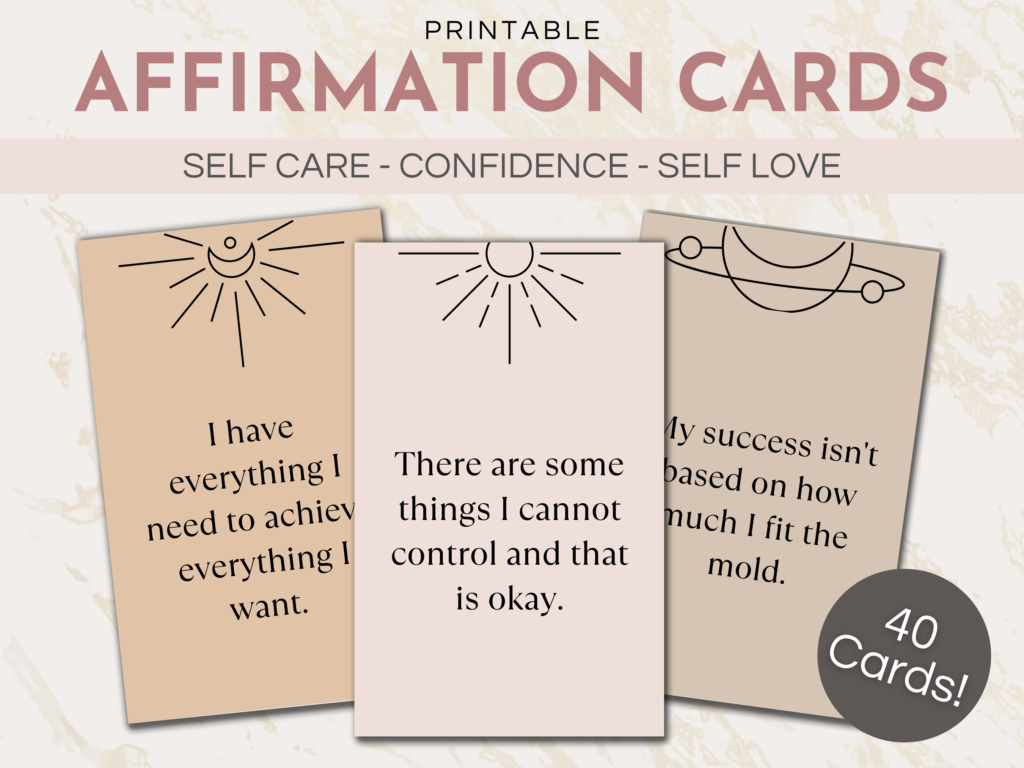Self Care for Empaths: 13 Activities to Protect Your Energy
This post contains affiliate links and I may receive a small commission (at no extra cost to you) if you sign up or purchase products or services mentioned. Read the full disclosure here.
Last Updated on March 2, 2023
Empaths feel deeper, love harder, and care a lot about the feelings of everyone around them. While empathy in and of itself is a basic human experience that we all feel, there is something special that separates empaths from the norm.
Turns out, there are real brain differences in how intensely we all experience empathy, which we’ll get into in this post. The science shows that empaths really do feel empathy more intensely than their peers. It’s not just woo-woo pseudoscience.
And, as an empath, you want to be sure you’re taking care of yourself, protecting your energy, and preventing empathy fatigue.
That’s why this list of self care for empaths is here to help you bring back balance into your life! These include great activities to add to an empath’s daily routine.
What Is An Empath?
If you feel deeply tuned into the feelings and energy of those around you, like an emotional sponge, you may be considered an empath. Empaths tend to absorb all of the surrounding emotions of people they interact with, whether those emotions are positive or negative.
Signs you might be an empath include:
- Feeling hypersensitive
- Getting easily overstimulated by sounds, smells, clutter, and other sensations
- Overwhelmed by large crowds
- Feeling as though your batteries need a recharge after heavy social interaction
- Having strong intuition
- Caring “too much” about anything and everything
- Being a good listener
- Very receptive to the problems of others
- Difficulty setting boundaries/being a people pleaser
Many of the traits empaths possess make for great advantages, but others can be very draining to deal with. You have a powerful intuition, high emotional intelligence, and get fulfillment out of being there for others. The downsides are needing to exercise more caution with protecting your own energy and the need for strong boundary-setting habits. Practicing self care for empaths can help!
The Science On What Makes An Empath An Empath
An “empath” is NOT just a silly pop-culture buzzword! There really is science to back up the idea that some people experience empathy more deeply than others, being hyper-sensitive to the vibes of those around them.
There are certain brain cells involved in compassion. These cells allow for the mirroring of others’ emotions. For example, seeing someone cry and feeling concerned and a little sad yourself. Or seeing someone bump their elbow and grasping your own elbow in response.
These brain cells, called “mirror neurons,” are thought to be extra sensitive in the brains of empaths. Humans can actually experience empathy on a spectrum. This is why psychopaths and sociopaths experience empathy differently too, landing on the other end of the spectrum, where they can be empathy-deficient.
So if you feel like you’re an empath, it might be because your brain is hyper-sensitive in response to other people’s experiences.
What Empaths Should Avoid
While empathy is a wonderful, beneficial trait to have, we can’t ignore the downsides. One of which is that being an empath can get exhausting!
We only have so much energy to feel for ourselves and give to others. If you’re absorbing all of the stressors around you, you need to prioritize the hell out of protecting your energy and knowing when to take a step back as a form of self care for empaths.
Energy-drainers that empaths should avoid include:
- Staying put in social settings – feeling trapped or forced into overwhelming situations is the last thing you want. Give yourself permission to move–whether that’s to the bathroom to take a break from stress at work, or leaving a party early if it’s doing you more harm than good.
- Excessive physical contact – your limit will look different than mine or the next person’s, but engaging in more physical contact than you’re comfortable with is an awful feeling. Remember, hugs are a choice. Even cutting a hug short or asserting your boundaries with physical touch can be a big help.
- Allowing too many or the wrong people into your circle – you have every right to be choosy about the people in your life!
- Inadequate alone time – our world can be SO overstimulating. Even if you’re not face to face with someone socially, your phone might make you feel just as overwhelmed. Be intentional and carve out space for screen-free time and time that is just for you.
- Living up to everyone’s expectations – empaths are known people-pleasers. But the reality is that you simply can’t please everyone. Meeting too many different sets of expectations just isn’t practical. Give yourself grace with the effort you put in with others.
- Negative media – consuming too much content that only makes you feel bad is just not worth it. Limit your consumption of heavy things like the news or sad stories.
As An Empath, You’re Always Experiencing Energy Transfers
When we think of empaths like emotional sponges, this also means that there’s an energy transfer at play. And this energy transfer happens at a really intense level.
For the average person, being around a chronic complainer would naturally bring them down in the dumps. This response is pretty typical for everyone, but for empaths, this feeling is even worse.
It can be long-lasting and bring down the mood of your whole day. It might even make you rethink your relationship with the chronic complainer because it is really just that draining for you.
Energy transfers are happening constantly for empaths, with pretty much everyone they interact with on any given day. The impact these energy transfers have can have a pretty intense impact on their emotional wellbeing, which is why you’ll want to take extra caution and practice self care that’s specifically for empaths.
How To Take Care Of Yourself As An Empath
As an empath, you’ll want to find a self-supportive daily routine, learn how to decompress, and overall take care of yourself to protect your energy. The following self care activities for empaths will give you the best ideas for balancing your deep feelings so you can thrive!
13 Self Care Activities For Empaths
1. Body Scans
When we feel mentally anxious, uptight, or tense, the body tends to follow. Doing a body scan can help to reduce anxiety held in the body. Here’s how you do one:
- Get comfortable, close your eyes, and inhale deeply. Hold for 3 seconds. Exhale.
- Starting with the top of your head, notice the state of your muscles. Are you tensing your forehead? Clenching your jaw? Release these as you notice them.
- Move down to your neck, your shoulders, arms, torso, and so on–releasing the muscles in each area if they are tense.
- Repeat until you reach your feet/toes
Body scans will help you create awareness of your body and also help you be mindful of what you are experiencing in the present moment. This opportunity to fully relax and connect with your body and mind is a great self care tool for empaths.
2. Journal After a Hard Day
If you follow my blog, you know that I will ALWAYS stand by journaling as one of the BEST self care tools for everyone–empaths, anxious people, and overthinkers included!
The best part is that you can journal with so many different goals in mind. You could journal for goal-setting, for self-reflection, for organizing your thoughts, and so much more.
But what’s the best time for empaths to journal? After a hard day.
If you’ve just been through a day filled with many social interactions, bad news you wish you didn’t hear, or unanticipated stress, you don’t want to keep those thoughts and feelings bottled up.
Using your journal as an outlet to release all of the pent-up emotions and experiences of the day will help you address them, process them, and move on from them.
Here are my favorite journal prompts to use on hard days:
- 14 Journal Prompts For Limiting Beliefs
- Intentional Journaling: Here’s The Best Way To Journal
- Ultimate Brain Dump Trigger List For Journaling
- 25 Journal Prompts For Boundaries You Might Need To Set
- 30 Grounding Journal Prompts To Soothe Yourself
- Self Forgiveness Journal Prompts: 32 Exercises To Let Go
3. Make Your Home Your Safe Space
Your brain associates the different areas of your home with the activities you do in them. So if you choose a quiet corner of your living room to be your safe space (a space you use exclusively for relaxation and decompression), your brain will start to recognize that area as a soothing spot. Avoid using your chosen space for work or other activities.
Organize the space you choose with all things relaxation. I’m talking candles, essential oil diffusers, a weighted blanket, relaxing music. Aim for things that tap into the 5 senses and go from there!
RELATED: Self Care For The Highly Sensitive Person: 20 Practices
4. Get to Know Your Boundaries. And Use Them.
As you’ve probably already figured out, enforcing boundaries is not exactly a strong suit for us empaths. We require a little more work to get strict on our boundaries and use them to our advantage as a self-protection tool.
First of all, figure out what your boundaries are in the first place. You can go person-by-person in your life or area-by-area of your life.
Does your mom call you way too much? Identify some guidelines with her, like only taking one 15-minute phone call per week. Let her know, and stick to it.
Are you a workaholic? Give yourself non-negotiable start and end times each day to separate work from home or leisure.
5. Reconnect With Your Inner Child
A surprising amount of empaths have been through early childhood trauma. Trauma can affect your sensitivity even into adulthood. If you think you may have some healing to do in that area, you may want to consider inner child work.
Reconnecting with and healing your inner child is a bigggg process. It’s not something that can be accomplished immediately. But digging into your inner child and doing the work can really help you manage your hypersensitivity as an empath.
If you don’t know where to start, a guided journal is your best friend. My printable inner child workbook is a trauma-focused, super comprehensive journal that will guide you through your healing journey from A-Z!
By the end of this workbook, you’ll learn how to:
- Overcome negative feelings like fear, self-blame, insecurity, and a harsh inner critic.
- Discover the link between your adult behaviors and the childhood roots they stem from.
- Re-parent your inner child as you get back in touch with fun, play, and a solid self care plan.
6. Deep Breathing Exercises
Deep breathing is essential for quieting the fight-or-flight response that keeps your body on hyper-alert when it really doesn’t need to be!
A super simple but effective deep breathing exercise that you can try today is box breathing.
Box breathing is where you take 4 seconds each to inhale, hold, exhale, hold. You’ll inhale for 4 seconds, hold for 4, exhale for 4, and hold for 4. Then, you repeat for as many times as you feel you need.
There’s also a ton of other deep breathing exercises out there, so feel free to try other techniques and see which suits you best!
7. Grounding Exercises
Grounding is one of the best exercises empaths can use for self care. It helps to fully immerse you in your present environment, rather than focusing on all the social interactions and intense feelings that have built up over the day.
My favorite is the 5-4-3-2-1 grounding method.
It goes like this:
- Name 5 things you can see
- Name 4 things you can touch/feel
- Name 3 things you can hear
- Name 2 things you can smell
- Name 1 thing you can taste
This method requires a little brain work as I search for each item, which helps me stay focused on what’s around me without my mind drifting off. Try this the next time your brain is going a mile a minute and could use some peace!
8. Be Gentle with Yourself
Both mentally and physically. We all know the feeling of being too hard on ourselves, slipping into the perfectionist mindset, and feeling hurt by that harsh inner critic of ours.
I encourage you to make it a habit to practice self love and self compassion, regularly. Give yourself the same grace you would give a friend who’s having a hard time. Tell yourself the same things you would say to comfort that friend. You deserve to treat yourself with empathy, too!
It also feels good to practice gentle movement, like yoga, stretching, or a nice leisurely walk. Be kind to both your body and mind.
9. Self-Massage
Self-massage is another great way to be gentle to your body. Whenever I have the time, I like to lay on the floor, take a tennis ball, and lay my back against it to massage any knots or tension out against the floor.
Or, if you don’t have time and you’re just sitting at your desk, you can even take your thumb on one hand and massage the palm of your other hand.
Taking such an intentional act of self care like massage allows you to check in with your body and give it what it needs. Plus, who doesn’t love a good massage?!
10. Practice Positive Affirmations
Back to the need for expressing self-love toward yourself, positive affirmations are an amaaazing way to do so.
Did you know that the more you practice positive self-talk, the more you re-wire your brain to think positive thoughts about yourself, naturally? Talk about the best way to silence that pesky inner critic!
To really drive those positive affirmations home, it’s especially effective to have a tangible, visual representation of your affirmations. Which is why I made these printable affirmation cards!
You’ll definitely want to grab these to add to your safe space! Use them as journal prompts, stick ‘em on your mirror for an everyday reminder, or get creative and turn them into a vision board or collage!
11. Have a Go-to DIY Self Care Kit
With so many self care tools and ideas, it’s easy to feel like you’re stuck debating on which ones to choose! This indecisiveness just eats up valuable time you could be spending actually doing self care.
A great solution for this is to create a personalized DIY self care kit. That is, a box or basket filled with all your favorite feel-good goodies that you can have at the ready whenever it’s self care time!
You can fill this basket with anything that’s helpful to you. Whether it’s your favorite book, warm fuzzy socks, a stress ball, and…well…a nice big chocolate bar doesn’t hurt either 😉
Want more ideas to craft the perfect self care kit that’s personal to you? Check out my post on how to create the ultimate DIY self care kit!
12. Find an Outlet and Express Yourself
I’m of the opinion that everyone needs a creative outlet to express themselves. Even if you don’t consider yourself a creative person, doing something creative allows you to feel free and have autonomy over what you’re doing.
This can be cooking, crafting, painting, woodwork, creative writing, crocheting, starting your very own blog…there really is something out there for everyone, you’ve just gotta find it!
RELATED: Hobbies for Women in Their 20s: 100 Fun & Interesting Ideas
13. Do a Social Media Audit
Last but not least on this list of self care for empaths, you will thank yourself if you do a social media audit.
What do I mean by that?
Take a thorough look at all of the accounts you follow. Take a look at your Tik Tok algorithm. Does this content serve you well, or does it make you feel bad in any way?
If going on Tik Tok makes you feel icky or triggered afterward, you might need to be more intentional with curating your feed to tell Tik Tok you’re “not interested” (there is literally an “I’m not interested” button) in the negative content.
Or if you follow someone you’re constantly comparing yourself to, why keep following them? The power is in your hands, so use it to make your social media time a more positive experience!
Struggling to manage your emotions and daily stressors as an empath? Talking to an online therapist can really help you out. It’s helped me tremendously with facing my big emotions! I always recommend Online Therapy because it’s a comprehensive, effective online therapy toolkit at an affordable monthly cost. Get 20% off your first month with the link below!
FAQs about Empaths
How Do Empaths Decompress?
Mindfulness exercises like grounding yourself in your immediate environment, body scan meditation (scanning your body for tension and releasing when you find it), and saying “no” when you need to are some of the best ways to decompress as an empath.
You’ll want to have a toolbox of self care activities at the forefront of your mind in times of stress and empathy fatigue.
How Do Empaths Survive?
The best way to survive (and thrive!) as an empath is to carefully craft a self care routine that best supports you and your needs as an empath. You can do this by setting healthy limits and boundaries, meditating, checking in with yourself and your mental health often (for example, by journaling), and taking frequent breaks from overwhelming stimuli.
Sensing when you’re near your limit and taking action accordingly will help you feel your best.
How Do You Take Care Of An Empath?
Maybe you know someone who is an empath and is struggling to manage the energy they’re always absorbing from others. How can you offer them support? Empaths need strong support systems and someone they can confide in when facing challenges.
How To Help An Empath Partner, Friend, or Loved One
- Validate – who doesn’t want to feel heard when they’re going through a tough time? Empaths especially care about validation from those they love. Let your empath buddy know that their feelings make sense and that they are understood.
- Discuss your socialization limits – your social battery might be different from theirs. Have an open, honest discussion about how much socializing is too much socializing from both of your perspectives. See where you can meet in the middle and come to a compromise.
- Don’t take it personally if they need space – empaths will likely need a little more time and space away from others than your average person. This is their time to recharge and cherish their alone time.
- Don’t become a people-pleaser – you can set a good example for the empath who is likely a people-pleaser themselves. Remember that it’s not your responsibility to “fix” your partner or erase all of their problems. More than likely, they just want you to be there for them.
If you’re an empath, you know just how difficult it can be to self-soothe and manage your big feelings. I hope these self care activities for empaths gave you some ideas for better-implementing self care geared toward your unique needs!
Learning more about yourself, your limits, and your challenges can help you create a personalized self care plan.
Take care.
More Self Care Ideas You’ll Love
Your Inner Teenager Needs Healing Too: 16 Proven Exercises To Do So
Self Care For The Highly Sensitive Person: 20 Practices
Self Care When You’re Sick: 30 Sick-Day Ideas
25 Diy Self Care Kit Ideas That Are Simple & Soothing
LIKE THIS POST ON SELF CARE FOR EMPATHS? PIN IT FOR LATER!











